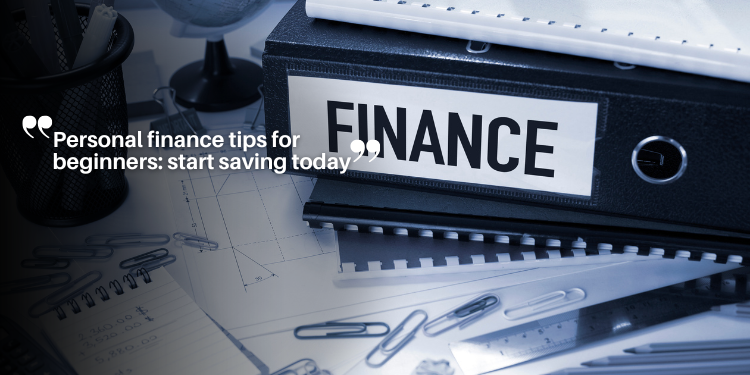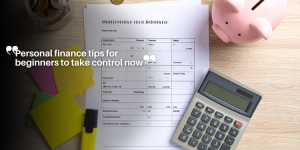Personal finance tips for beginners: start saving today

Personal finance tips for beginners include creating a budget, building an emergency fund, investing early, and continuously educating yourself about financial topics to achieve long-term financial stability.
Personal finance tips for beginners are essential for anyone looking to take charge of their money management. Have you ever felt overwhelmed by handling finances? You’re not alone! Let’s dive into practical strategies you can easily implement.
Understanding budgeting basics
Understanding budgeting basics is crucial for mastering your personal finances. A budget acts like a roadmap, guiding you towards your financial goals. But how do you start?
First, it’s important to know your income and expenses. Assess your earnings from all sources, then track your spending habits. This may sound tedious, but it sets a strong foundation for your budget.
Types of Budgets
There are different types of budgets, and each serves a unique purpose:
- The 50/30/20 Rule: Allocates 50% of your income to needs, 30% to wants, and 20% to savings.
- Zero-Based Budget: Every dollar is assigned to a specific purpose, leaving no leftover amount.
- Envelope System: Cash is divided into envelopes for different spending categories, promoting mindful spending.
Once you choose a budgeting method, it’s time to create your budget. List your fixed expenses, like rent or mortgage, utilities, and groceries. Then, factor in discretionary spending, such as entertainment and dining out. Don’t forget to include savings in your budget as a non-negotiable expense.
Tracking and Adjusting
Next comes tracking your budget. Regularly assess your spending to see if it aligns with your budget. If not, examine why and adjust accordingly. It’s normal to face challenges while budgeting, but staying flexible will help you adapt.
Staying accountable is key in this process. Consider sharing your goals with a trusted friend or family member who can encourage you. This support can make a big difference in sticking to your budgeting plan.
Moreover, remember that budgeting is not a one-time task. It requires regular reviews and adjustments to ensure it meets your changing financial situation. As your income or expenses fluctuate, modify your budget to continue working towards your goals.
Smart saving strategies for beginners
Smart saving strategies for beginners are essential for building a solid financial foundation. Starting early can make a big difference in achieving your financial goals. Let’s explore practical ways to kickstart your savings journey.
One effective method is to set specific savings goals. This can be anything from a vacation fund to an emergency fund. By determining what you’re saving for, you can stay motivated. A clear target helps you plan how much you need to save each month.
Automate Your Savings
Automating your savings is another smart strategy. This means setting up automatic transfers from your checking account to your savings account. Here’s why it works:
- Consistency: You save without thinking about it.
- Discipline: You prioritize savings over spending.
- Less temptation: You’re less likely to spend money you don’t see.
Another great tactic is to take advantage of high-interest savings accounts. These accounts usually offer better interest rates than traditional savings accounts. By placing your savings in a high-yield account, your money grows faster, helping you reach your goals more quickly.
Reduce Unnecessary Expenses
Finding ways to cut back on expenses can significantly boost your savings. Start by tracking your spending to identify areas where you might be overspending. You might be surprised at why you’re spending money. Consider these tips:
- Cook at home: Eating out can add up quickly.
- Cancel unused subscriptions: Monthly fees for services you rarely use are money wasted.
- Shop smarter: Look for sales, use coupons, or buy in bulk.
Creating a budget is critical to keep these spending habits in check. Along with your savings goals, your budget should reflect your income and necessary expenses. This way, you can allocate proper amounts for savings and spending.

Common pitfalls in personal finance to avoid
Understanding the common pitfalls in personal finance is crucial to achieving financial stability. Many beginners encounter similar problems, often without realizing it. By recognizing these pitfalls early, you can avoid costly mistakes.
One major mistake is failing to create a budget. Without a clear plan, it’s easy to overspend or mismanage funds. A budget helps you track income and expenses, ensuring you live within your means.
Ignoring Emergency Funds
Another common issue is neglecting to build an emergency fund. Life is unpredictable, and unexpected expenses can arise at any moment. Having an emergency fund can give you peace of mind and prevent you from going into debt when emergencies occur. Aim to save at least three to six months’ worth of living expenses.
Accumulating Debt
It’s also vital to avoid accumulating unnecessary debt. Credit cards can offer convenience, but high-interest rates can lead to substantial debt if not managed carefully. Always try to pay off your balance each month to avoid interest charges.
- Limit credit card usage: Only use them for necessary purchases.
- Make timely payments: Set up reminders or autopay to avoid late fees.
- Consider alternatives: Look for low-interest loans if you need to borrow money.
Many individuals also overlook the importance of investing. Failing to invest early can significantly impact your future wealth. Even small amounts can grow over time due to the power of compound interest. Start investing as soon as you can to maximize your returns.
Not Educating Yourself
Finally, a significant pitfall is not investing time in learning about personal finance. Lack of knowledge can lead to poor decisions. Take advantage of resources like articles, podcasts, and financial courses. Educating yourself can empower you to make informed choices.
Investment options for beginners
Investment options for beginners can seem overwhelming, but they are crucial for building wealth over time. Even small investments can significantly impact your financial future if managed wisely. Let’s explore some of the best investment options you can start with.
One of the simplest options is a savings account. While not technically an investment, it provides a safe place for your money. Plus, you earn a bit of interest. This is often the first step for many beginners.
Stocks
Another popular choice is investing in stocks. When you buy a stock, you’re purchasing a small part of a company. Stocks can provide high returns, but they come with risks. Investing in well-established companies can be a good start.
Exchange-Traded Funds (ETFs)
Exchange-Traded Funds, or ETFs, are another great option. An ETF is a collection of stocks or assets bundled together. This allows you to invest in many companies at once, reducing risk. Some popular ETFs focus on certain sectors like technology or healthcare.
- Diversification: Investing in an ETF helps spread risk.
- Lower fees: ETFs usually have lower management fees than mutual funds.
- Easy to trade: ETFs can be bought and sold like stocks on the market.
For those looking for less risk, bonds might be ideal. Bonds are loans made to corporations or governments that pay back a fixed amount over time. They are generally safer than stocks but provide lower returns.
Robo-Advisors
If you prefer a hands-off approach, consider using robo-advisors. These platforms use algorithms to create and manage your investment portfolio. You only need to answer a few questions about your goals and risk tolerance. Robo-advisors do the rest, adjusting your investments as needed.
Finally, think about retirement accounts like a 401(k) or an IRA. Even if retirement seems far away, starting early can lead to significant savings. Many employers offer matching contributions for 401(k)s, giving you free money as you save.
FAQ – Frequently Asked Questions about Personal Finance for Beginners
What is the best way to start saving money?
The best way to start saving is to create a budget that includes a specific savings goal. Automating your savings can also help.
How much should I have in an emergency fund?
Aim to save three to six months’ worth of living expenses in your emergency fund to cover unexpected costs.
Is investing in stocks risky for beginners?
Investing in stocks does carry risks, but starting with small investments and diversifying can help reduce those risks.
What resources can I use to learn more about personal finance?
You can find valuable information in personal finance books, online courses, podcasts, and financial blogs to enhance your knowledge.







